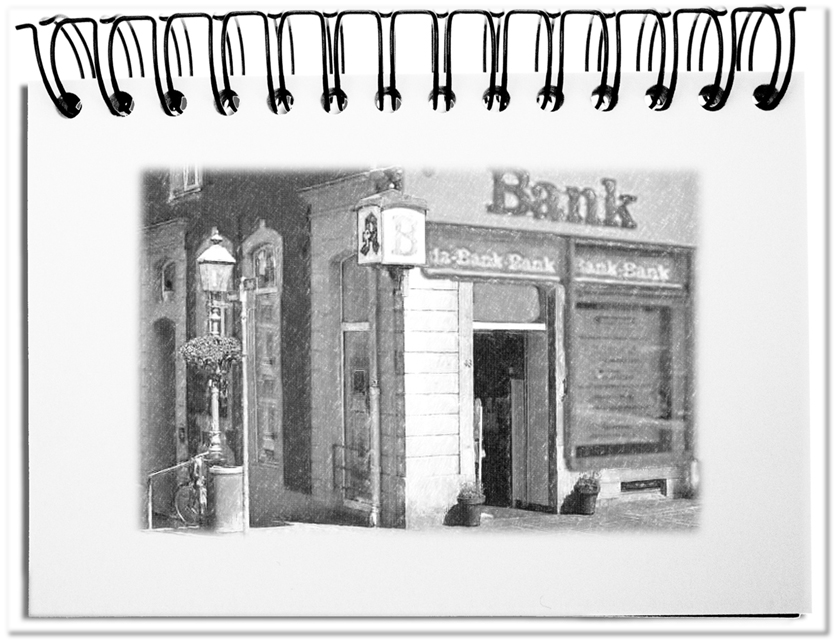The complex interplay of purposes and means as well as the influence of the unintended consequences leads to a certain arbitrariness of purpose. In principle, it is possible for everyone to interpret the purpose according to their own interests and thus to misuse one for another purpose. For example, when a pharmacy, whose purpose is to provide medicines to cure patients, supplies cheaper compounds to satisfy economic interests; or when the railways no longer have the purpose of providing public mobility but abandon routes because they do not have the desired capacity utilization; or when the postal service becomes privatized and subsequently different service providers deliver parcels, each with different vehicles and schedules throughout the day – which consequently leads to an increase in the number of vans. If the comprehensible purpose is replaced by another, mostly an economic one, then the actual purpose degenerates to a pretended one.
In the end the purpose is in the eye of the beholder. This means that all measures can be assumed to have different intentions. Nevertheless, there are also attempts to deceive the public and to pretend a purpose. What are the reasons for a purpose?
- Original reasons
Belief in a product, service or idea is the drive that gives inventors and founders the perseverance to get through the early stages of their business. The trust that you create for yourself or for others, makes it possible to get through the enormous efforts and early setbacks and to keep up. Carl Benz’s family is a good example of the needed support – Bertha Benz and her children, who made it possible to cross the tipping point to the establishment of auto-mobility by daring and achieving the first overland tour with a car. They were propelled by the belief in the automobile and the abilities of Carl Benz. - Economic reasons
Mass production permeates the world of purposes. It is irrelevant whether cars, cigarettes, books or schnitzel are produced on a production line. The original purposes of mobility, tobacco, and knowledge transfer or food intake are replaced by the purpose of maximum utilization of the manufacturing line. As automation progresses, the jobs are taken over by machines and the remaining purpose is to create added value – regardless of the original purpose of the goods. This is always driven by the pursuit of the owners for more, no matter in which industry. - Market reasons
Especially long-lasting companies have experienced shifts in purpose over the decades. A good example is 3M, which we know from Post-its. Many people are not familiar with the origin that is reflected in the name – Minnesota Mining and Manufacturing Company. In the beginning 3M mined minerals to produce abrasive paper for the automotive industry. Today, the company holds 25,000 patents, produces 50,000 different products based on 47 technology platforms. 3M is driven by the requirements of customers and the market – and by the inventive spirit of its employees. - Marketing reasons
In the flood of products, companies have to keep coming up with new ways to attract attention. The original and economic purposes take a back seat in favor to advertising psychological purposes. One example is Greenwashing, e.g. MacDonalds Scale for good or Nestlé’s NaturaALL Bottle Alliance. For PR reasons, the exploitation of resources is concealed and at the same time customers are attracted with “greener” offers. This purpose is driven by the compulsive search for usable attention. - Personal reasons
Employees and managers are not necessarily interested in the original purpose of a company, but more about their own development. This is particularly visible in managers, who move from one industry to another and fill various functions and responsibilities as well as board positions, typically before the adverse consequences of their actions catch up with them – for obvious legal reasons there are no names here. Their real purpose is the personal career. Depending on the initial situation, convenient reasons are pretended, even though it is only about the one thing. This purpose is driven by personal ambition.
The greatest difficulty today is that all enterprises hide behind economic reasons. Instead a company should fulfil its very own purpose –
- Hospitals should provide health care, not increase profits through too many operations
- Railways should expand public transport offers, not closing lines in the interest of added value
- Network providers should increase mobile network coverage, not introduce the latest bandwidth just for urban regions
- …
Bottom line: The purpose of a company is often not clear. With shareholder value, the companies have found a purpose that is beyond the original (except: for banks). Certain groups are satisfied at the expense of all. The original raison d’être of a company is abandoned in the interest of profitability. As if that were not enough, there are other possible reasons for a company to orient oneself (see above). Thus despite the fact that there is more sense in supplying the population with local agricultural products that do not destroy the environment or in caring for the elderly, than in maximizing profits at the expense of the real purpose. But beware: the commitment of employees and society cannot be achieved by means of a pretended purpose.


